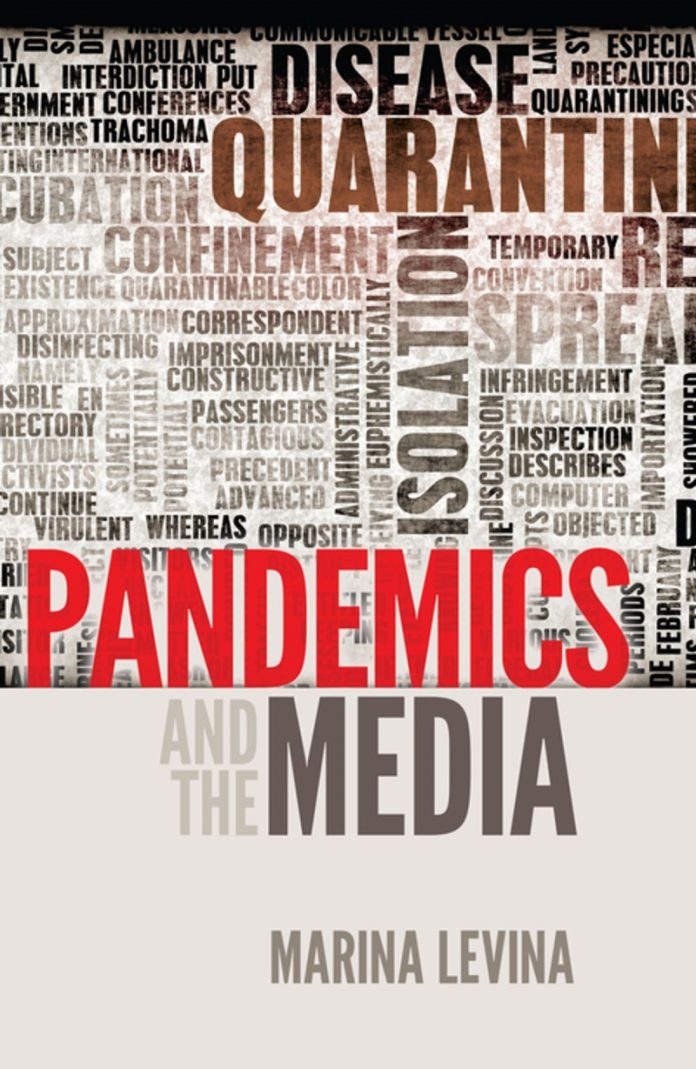California State University, Monterey Bay (CSUMB) and the Otter Student Union (OSU) hosted a virtual keynote on March 25 with Dr. Marina Levina, discussing pandemics within our society. Levina is an associate professor of media studies at the University of Memphis, whose work focuses on cultural and critical theories and frameworks. During the keynote, Levina’s book, “Pandemics & the Media,” was dissected to help students better understand how to react, prepare and cope with the nation’s current COVID-19 crisis.
Levina started the keynote addressing the past pandemic of H1N1, commonly known as the swine flu, which started in Mexico back in 2009 and quickly spread to the United States and Canada. The World Health Organization banned the word “swine” when describing the influenza, and the Center of Disease Control listed the reason behind banning the word as a protection to cultural and sensitive issues around the world.
“In the United States, the name triggered the eye of the pork industry who feared it would adversely affect farms and pork production,” Levina said.
Globally, people failed to recognize that pigs were unable to contract the virus, which prompted the World Health Organization to change the name to Influenza A, or as previously stated, H1N1.
Looking at the severe consequences that came from people believing pigs were responsible for starting the pandemic, Levina said, “Around the world, the unfortunate name triggered a number of unfortunate responses.”
“Egypt decided to kill all of their pigs, around 30,000, even though there were no known cases,” Levina said.
Due to the media’s coverage of the name “swine flu,” other countries, such as Israel, decided to start labeling the influenza the “Mexican flu,” which undoubtedly angered the Mexican government in response. Levina referenced the series of events that followed from the false and misappropriated use of media to highlight how powerful the media’s word is and how quickly populations will take to trust what is being dispersed to them, even without having other knowledgeable sources.
Levina told the audience her research theories center on three main points: the stories we tell about disease matter, the media is essential in constructing and disseminating these stories, and mediated narratives of pandemics are rooted in global flows of meaning and definitions.
“I wanted to explore what it means to live, love and govern in the time of a pandemic,” Levina said.
Levina explained to the audience if pandemics are the issue of global security, the media is equally held accountable and responsible for appropriating accurate information to combat the spread of hysteria and fear. Mediated representation is essential in distributing resources.
In today’s world, we perceive information through the media – no matter the platform it’s received on.
“Trump’s insistence on calling COVID-19 a Chinese virus, while reprehensible and obviously racist, has also demonstrated that the stories we tell about pandemics matter in how we anticipate and respond to the risk,” Levina said.
When we allow the media to exploit xenophobia, we negate the actual risks of the virus. While COVID-19 was highly anticipated to affect China and Iran, the media and those listening were blindsided by the immense recurpussions felt by Italy. The xenophobic actions displayed by the media and its patrons proved to subject black and brown bodies as highly susceptible, when in reality, COVID-19 does not look at race when claiming victims.
Levina notes that zombie apocalypse films most accurately showcase what happens when disease goes global. In fact, the Center for Disease Control released a blog on how to survive a zombie apocalypse – a blog so popular that their site crashed two days after initial release.
“The infected way of life becomes our way of living life,” Levina said.
Levina argues that zombie films depict how governments react during a global crisis, resulting in a pandemic infecting people left and right, ultimately producing a state of acceptance. If the fear of infection spreading fast enough occurs, we will change our daily life to avoid a permanent state of acceptance. Pandemics cause populations to question who is worth living and sacrificing.
While we currently have people in our society going to work being classified as “essential,” we are allowing others to stay in the comfort of their home and spare themselves the risk of infection.
“This pandemic didn’t break us, it exposed that we are already broken,” Levina said. “We became infected living a long time ago. COVID-19 has shown us that we are.”
One viewer asked Levina if she believes the COVID-19 pandemic will result in society blaming animals, but Levina argues humans will be the first to blame. Another viewer asked Levina how citizen journalism, such as first-hand documents from Italian people, will influence the COVID-19 pandemic. Levina was not completely sure how immense the impact will be, but she is sure this pandemic will cause a cultural change globally that will be felt for years to come.
While the outcome of COVID-19 is uncertain, and times have changed drastically, we can all do our part in preventing the spread of infection by practicing social distancing, maintaining adequate health, and helping out our most at-risk community or family members with running errands or staying away – no matter how difficult it seems to be. To be the change in our broken system, we must act accordingly and remain positive through it all.
It is important to remember: COVID-19 will not last forever and life will resume normal once again.

